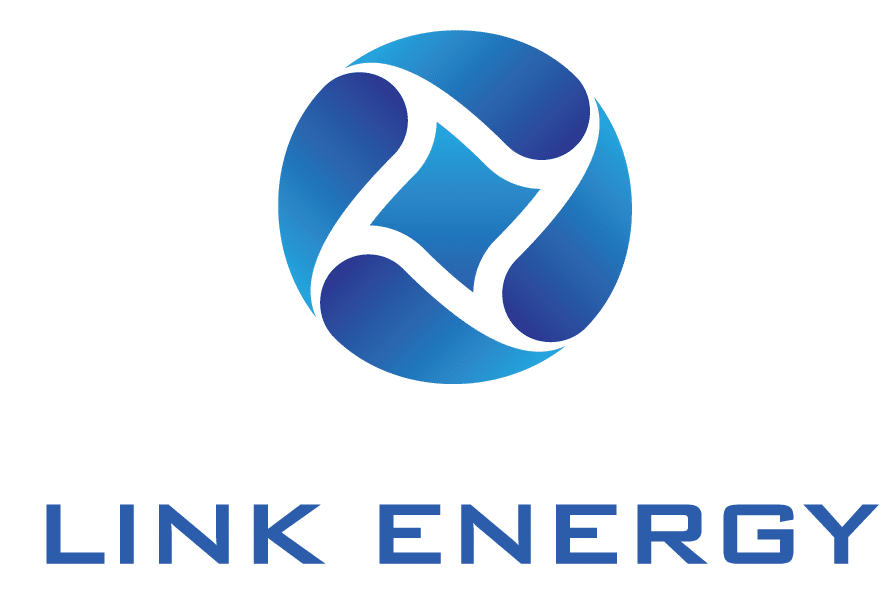Alberta Electricity Rates

The average cost of electricity per month in Alberta has steadily increased in the past three years. You’ve probably noticed that electricity rates — and, of course, electricity bills — are notably higher when compared to the historic lows from 2017. At that time, electricity prices were around 2.88 cents per kilowatt-hour (kWh). Fast forward to December 2022, when floating rates reached ¢37.464/kWh, a historic high. Electricity prices were high in 2023 as well, with floating rates reaching ¢24.751/kWh in June 2023. Also, consumers under floating-rate plans, especially large consumers of electricity, had seen considerable spikes in their bills for most of the months in 2021, 2022, and 2023. In 2025, electricity prices have lowered and have been somewhat stable. Prices are expected to remain fairly consistent but could rise leading into 2026 and 2027.
So, how do Alberta electricity prices increase or decrease? Why are our bills so high sometimes, and why can they sometimes be lower? And can consumers do anything to reduce Alberta electricity bills regardless of the kilowatt-hour cost fluctuations? Regardless of your concern, we’ve got you covered. Our article below can help you navigate the current Alberta power market and find the best energy prices for your home or business.
What can I do to avoid high electricity bills in Alberta?
Although there have been some efforts to stabilize Alberta electricity prices, it’s still somewhat difficult to predict what electricity bills in the province will look like in the months ahead.
Variable vs. fixed energy rates: Finding the best electricity prices
In times of price fluctuation (or even worse, increasing prices), consumers can take advantage of fixed rates for electricity in Alberta.
Fixed energy rates will provide you with cost certainty. In times of higher market prices, customers under fixed-rate plans won’t feel so affected, as their electricity price per kWh won’t be susceptible to market fluctuations; they will pay a consistent price that will not change for the entirety of the contract.
Instead of focusing on the cheapest electricity rates at the time you sign a deal, take a look at both historical prices and the forecast. In other words, look at the downside and upside risks related to the contract you’re about to sign. For most energy customers, especially large consumers, fixed rates will bring more predictability to your budget and protect you from sudden market changes. Once you know what to expect from your monthly bills, you reduce the risks of unwelcome financial surprises.
While floating rates can experience price spikes, there are times when they are cheaper than fixed-rate options. For example, the average floating rate in Alberta for September 2024 was 5.251¢/kWh. By comparison, the fixed rate average was 9.273¢/kWh. However, just as floating-rate customers can benefit from the lowest possible rates when rates are low, they can also face surprisingly high energy bills. So, choosing between the two largely comes down to personal preference and risk tolerance — at least when the market rate isn’t consistently high, which wasn’t the case for most of 2023 and early 2024.

At EnergyRates.ca, you can learn more about the differences between floating and fixed rates, but also compare Alberta electricity providers and their rates, including ENMAX Energy, Direct Energy, Encor by EPCOR and ATCO Energy.
Our website allows you to compare utility costs and determine which electricity supplier fits your energy needs. The cost comparison tool lets you find the best and cheapest available providers in Alberta, as well as make a comparison of the current electricity plans in your area. Consumers looking for small business, commercial or industrial gas suppliers can even get a custom rate comparison report.
In Alberta, there are three ways homeowners can purchase electricity:
- Via the Rate of Last Resort, the regulated option. This plan is only available for those who consume less than 250,000 kWh/year.
- Via a competitive fixed-rate plan.
- Or via a competitive floating rate plan.
In addition to the guidance above, we listed below the current competitive fixed and floating electricity prices, as well as the average regulated rates in the province for the past few years, so you can have a fact-based comparison.
Fixed electricity rates in Alberta
Retailer | Advertised Electricity Price/kWh | Total Retail Fee/kWh | Site Fee | Term & Cancellation Fee | Company/Plan | Plan Details | Total Retail Fee/kWh | |
¢7.99
|
¢9.29
| $6.90 | 12 months Early Exit Fee: $100 | Advertised Price/kWh: ¢7.99 1 Year Fixed Rate | Term: 12 months Monthly Admin Fee: $6.90 Cancellation Fee: Early Exit Fee of $100 |
¢9.29
| ||
¢7.99
|
¢9.29
| $6.90 | 24 months Early Exit Fee: $100 | Advertised Price/kWh: ¢7.99 2 Year Fixed Rate | Term: 24 months Monthly Admin Fee: $6.90 Cancellation Fee: Early Exit Fee of $100 |
¢9.29
| ||
¢7.99
|
¢9.29
| $6.90 | 12 months Early Exit Fee: $100 | Advertised Price/kWh: ¢7.99 1 Year Fixed Rate | Term: 12 months Monthly Admin Fee: $6.90 Cancellation Fee: Early Exit Fee of $100 |
¢9.29
| ||
¢7.99
|
¢9.29
| $6.90 | 24 months Early Exit Fee: $100 | Advertised Price/kWh: ¢7.99 2 Year Fixed Rate | Term: 24 months Monthly Admin Fee: $6.90 Cancellation Fee: Early Exit Fee of $100 |
¢9.29
| ||
¢7.99
|
¢9.29
| $6.90 | 12 months Early Exit Fee: $100 | Advertised Price/kWh: ¢7.99 1 Year Fixed Rate | Term: 12 months Monthly Admin Fee: $6.90 Cancellation Fee: Early Exit Fee of $100 |
¢9.29
| ||
¢7.99
|
¢9.29
| $6.90 | 24 months Early Exit Fee: $100 | Advertised Price/kWh: ¢7.99 2 Year Fixed Rate | Term: 24 months Monthly Admin Fee: $6.90 Cancellation Fee: Early Exit Fee of $100 |
¢9.29
| ||
Edmonton region |
¢7.99
|
¢9.29
| $6.90 | 12 months Early Exit Fee: $100 | Advertised Price/kWh: ¢7.99 1 Year Fixed Rate | Term: 12 months Monthly Admin Fee: $6.90 Cancellation Fee: Early Exit Fee of $100 |
¢9.29
| |
Edmonton region |
¢7.99
|
¢9.29
| $6.90 | 24 months Early Exit Fee: $100 | Advertised Price/kWh: ¢7.99 2 Year Fixed Rate | Term: 24 months Monthly Admin Fee: $6.90 Cancellation Fee: Early Exit Fee of $100 |
¢9.29
| |
¢7.99
|
¢9.29
| $6.90 | 12 months Early Exit Fee: $100 | Advertised Price/kWh: ¢7.99 1 Year Fixed Rate | Term: 12 months Monthly Admin Fee: $6.90 Cancellation Fee: Early Exit Fee of $100 |
¢9.29
| ||
¢7.99
|
¢9.29
| $6.90 | 24 months Early Exit Fee: $100 | Advertised Price/kWh: ¢7.99 2 Year Fixed Rate | Term: 24 months Monthly Admin Fee: $6.90 Cancellation Fee: Early Exit Fee of $100 |
¢9.29
| ||
¢7.99
|
¢9.29
| $6.90 | 12 months Early Exit Fee: $100 | Advertised Price/kWh: ¢7.99 1 Year Fixed Rate | Term: 12 months Monthly Admin Fee: $6.90 Cancellation Fee: Early Exit Fee of $100 |
¢9.29
| ||
¢7.99
|
¢9.29
| $6.90 | 24 months Early Exit Fee: $100 | Advertised Price/kWh: ¢7.99 2 Year Fixed Rate | Term: 24 months Monthly Admin Fee: $6.90 Cancellation Fee: Early Exit Fee of $100 |
¢9.29
| ||
¢7.99
|
¢9.29
| $6.90 | 12 months Early Exit Fee: $100 | Advertised Price/kWh: ¢7.99 1 Year Fixed Rate | Term: 12 months Monthly Admin Fee: $6.90 Cancellation Fee: Early Exit Fee of $100 |
¢9.29
| ||
¢7.99
|
¢9.29
| $6.90 | 24 months Early Exit Fee: $100 | Advertised Price/kWh: ¢7.99 2 Year Fixed Rate | Term: 24 months Monthly Admin Fee: $6.90 Cancellation Fee: Early Exit Fee of $100 |
¢9.29
| ||
Special rate for seniors
¢7.37
|
¢9.35
Special rate for seniors | $10.50 - $10.85 | 24 months No Fee - 10 days' notice | Special rate for seniors | Special rate for seniors Advertised Price/kWh: ¢7.37 2 Year Fixed Electricity | Term: 24 months Monthly Admin Fee: $10.50 - $10.85 Cancellation Fee: No Fee - 10 days' notice |
¢9.35
Special rate for seniors | |
If bundled with natural gas |
¢7.47
If bundled with natural gas |
¢9.54
If bundled with natural gas | $10.99 - $11.19 | 12 months No Fee - 10 days' notice | If bundled with natural gas | If bundled with natural gas Advertised Price/kWh: ¢7.47 1 Year Fixed Electricity | Term: 12 months Monthly Admin Fee: $10.99 - $11.19 Cancellation Fee: No Fee - 10 days' notice |
¢9.54
If bundled with natural gas |
¢7.57
|
¢9.64
| $10.99 - $11.19 | 12 months No Fee - 10 days' notice | Advertised Price/kWh: ¢7.57 1 Year Fixed Electricity | Term: 12 months Monthly Admin Fee: $10.99 - $11.19 Cancellation Fee: No Fee - 10 days' notice |
¢9.64
| ||
If bundled with natural gas |
¢7.67
If bundled with natural gas |
¢9.74
If bundled with natural gas | $10.99 - $11.19 | 24 months No Fee - 10 days' notice | If bundled with natural gas | If bundled with natural gas Advertised Price/kWh: ¢7.67 2 Year Fixed Electricity | Term: 24 months Monthly Admin Fee: $10.99 - $11.19 Cancellation Fee: No Fee - 10 days' notice |
¢9.74
If bundled with natural gas |
¢7.77
|
¢9.75
| $10.50 - $10.85 | 24 months No Fee - 10 days' notice | Advertised Price/kWh: ¢7.77 2 Year Fixed Electricity | Term: 24 months Monthly Admin Fee: $10.50 - $10.85 Cancellation Fee: No Fee - 10 days' notice |
¢9.75
| ||
¢8.25
|
¢10.06
| $9.60 - $9.92 | 24 months No Fee - 15 days' notice | Advertised Price/kWh: ¢8.25 2 Year Guaranteed Rate | Term: 24 months Monthly Admin Fee: $9.60 - $9.92 Cancellation Fee: No Fee - 15 days' notice |
¢10.06
| ||
¢8.25
|
¢10.14
| $9.99 | 12 months No Fee - 15 days' notice | Advertised Price/kWh: ¢8.25 1 Year Guaranteed Rate | Term: 12 months Monthly Admin Fee: $9.99 Cancellation Fee: No Fee - 15 days' notice |
¢10.14
| ||
¢8.25
|
¢10.14
| $9.99 | 24 months No Fee - 15 days' notice | Advertised Price/kWh: ¢8.25 2 Year Guaranteed Rate | Term: 24 months Monthly Admin Fee: $8.99 Cancellation Fee: No Fee - 15 days' notice |
¢10.14
| ||
New customer promo - $130 in savings |
¢8.78
|
¢10.14
| $7.20 ($0 for the first 6 months; then $10.80) | 36 months No Fee - 15 days' notice | Advertised Price/kWh: ¢8.78 New customer promo - $130 in savings 3 Year Guaranteed Rate | Term: 36 months Monthly Admin Fee: $10.99 Cancellation Fee: No Fee - 15 days' notice |
¢10.14
| |
¢8.85
|
¢10.52
| $8.85 | 12 months No Fee - 10 days' notice | Advertised Price/kWh: ¢8.85 1 Year Base Rate | Term: 12 months Monthly Admin Fee: $8.85 Cancellation Fee: No Fee - 10 days' notice |
¢10.52
| ||
¢8.79
|
¢10.66
| $9.90 - $10.23 | 24 months No Fee - 30 days' notice | Advertised Price/kWh: ¢8.79 2 Year Fixed | Term: 24 months Monthly Admin Fee: $9.90 - $10.23 Cancellation Fee: No Fee - 30 days' notice |
¢10.66
| ||
¢8.77
|
¢10.84
| $10.99 - 11.19 | 36 months No Fee - 10 days' notice | Advertised Price/kWh: ¢8.77 3 Year Fixed Electricity | Term: 36 months Monthly Admin Fee: $10.99 - 11.19 Cancellation Fee: No Fee - 10 days' notice |
¢10.84
| ||
¢8.77
|
¢10.84
| $10.99 - $11.19 | 60 months No Fee - 10 days' notice | Advertised Price/kWh: ¢8.77 5 Year Fixed Electricity | Term: 60 months Monthly Admin Fee: $10.99 - $11.19 Cancellation Fee: No Fee - 10 days' notice |
¢10.84
| ||
¢8.99
|
¢10.86
| $9.90 - $10.23 | 12 months No Fee - 30 days' notice | Advertised Price/kWh: ¢8.99 1 Year Fixed | Term: 12 months Monthly Admin Fee: $9.90 - $10.23 Cancellation Fee: No Fee - 30 days' notice |
¢10.86
| ||
¢9.25
|
¢10.92
| $8.85 | 36 months No Fee - 10 days' notice | Advertised Price/kWh: ¢9.25 3 Year Base Rate | Term: 36 months Monthly Admin Fee: $8.85 Cancellation Fee: No Fee - 10 days' notice |
¢10.92
| ||
¢8.77
|
¢11.13
| $12.50 ($10 if bundled) | 24 months No Fee - 30 days' notice | Advertised Price/kWh: ¢8.77 2 Year Plan | Term: 24 months Monthly Admin Fee: $12.50 ($10 if bundled) Cancellation Fee: No Fee - 30 days' notice |
¢11.13
| ||
¢9.25
|
¢11.32
| $10.99 | 36 months No Fee - 15 days' notice | Advertised Price/kWh: ¢9.25 3 Year Guaranteed Rate | Term: 36 months Monthly Admin Fee: $10.99 Cancellation Fee: No Fee - 15 days' notice |
¢11.32
| ||
¢9.49
|
¢11.36
| $9.90 - $10.23 | 36 months No Fee - 30 days' notice | Advertised Price/kWh: ¢9.49 3 Year Fixed | Term: 36 months Monthly Admin Fee: $9.90 - $10.23 Cancellation Fee: No Fee - 30 days' notice |
¢11.36
| ||
New customer promo - $130 in savings |
¢9.78
|
¢11.41
| $8.64 ($0 for the first 6 months; then $10.80) | 60 months No Fee - 15 days' notice | Advertised Price/kWh: ¢9.78 New customer promo - $130 in savings 5 Year Guaranteed Rate | Term: 60 months Monthly Admin Fee: $9.99 Cancellation Fee: No Fee - 15 days' notice |
¢11.41
| |
¢8.99
|
¢11.51
| $13.35 | 12 months No Fee - 10 days' notice | Advertised Price/kWh: ¢8.99 1 Year Fixed Electricity Rate | Term: 12 months Monthly Admin Fee: $13.35 Cancellation Fee: No Fee - 10 days' notice |
¢11.51
| ||
¢8.002
|
¢11.53
| $18.69 - 18.98 | 12 months No Fee - 30 days' notice | or call (855) 444-5465 | Advertised Price/kWh: ¢8.002 1 Year Residential Fixed Electricity Rate | Term: 12 months Monthly Admin Fee: $18.69 - 18.98 Cancellation Fee: No Fee - 30 days' notice |
¢11.53
or call (855) 444-5465 | |
¢9.67
|
¢12.03
| $12.50 ($10 if bundled) | 12 months No Fee - 30 days' notice | Advertised Price/kWh: ¢9.67 1 Year Plan | Term: 12 months Monthly Admin Fee: $12.50 ($10 if bundled) Cancellation Fee: No Fee - 30 days' notice |
¢12.03
| ||
¢9.55
|
¢12.07
| $13.35 | 24 months No Fee - 10 days' notice | Advertised Price/kWh: ¢9.55 2 Year Fixed Electricity Rate | Term: 24 months Monthly Admin Fee: $13.35 Cancellation Fee: No Fee - 10 days' notice |
¢12.07
| ||
¢10.25
|
¢12.14
| $9.99 | 60 months No Fee - 15 days' notice | Advertised Price/kWh: ¢10.25 5 Year Guaranteed Rate | Term: 60 months Monthly Admin Fee: $9.99 Cancellation Fee: No Fee - 15 days' notice |
¢12.14
| ||
¢9.87
|
¢12.23
| $12.50 ($10 if bundled) | 36 months No Fee - 30 days' notice | Advertised Price/kWh: ¢9.87 3 Year Plan | Term: 36 months Monthly Admin Fee: $12.50 ($10 if bundled) Cancellation Fee: No Fee - 30 days' notice |
¢12.23
| ||
¢10.79
|
¢12.66
| $9.90 - $10.23 | 60 months No Fee - 30 days' notice | Advertised Price/kWh: ¢10.79 5 Year Fixed | Term: 60 months Monthly Admin Fee: $9.90 - $10.23 |
¢12.66
| ||
¢10.50
|
¢13.02
| $13.35 | 36 months No Fee - 10 days' notice | Advertised Price/kWh: ¢10.50 3 Year Fixed Electricity Rate | Term: 36 months Monthly Admin Fee: $13.35 Cancellation Fee: No Fee - 10 days' notice |
¢13.02
| ||
¢9.534
|
¢13.071
| $18.69 - 18.98 | 36 months No Fee - 30 days' notice | or call (855) 444-5465 | Advertised Price/kWh: ¢9.534 3 Year Residential Fixed Electricity Rate | Term: 36 months Monthly Admin Fee: $18.69 - 18.98 Cancellation Fee: No Fee - 30 days' notice |
¢13.071
or call (855) 444-5465 | |
¢10.005
|
¢13.54
| $18.69 - 18.98 | 60 months No Fee - 30 days' notice | or call (855) 444-5465 | Advertised Price/kWh: ¢10.005 5 Year Residential Fixed Electricity Rate | Term: 60 months Monthly Admin Fee: $18.69 - 18.98 Cancellation Fee: No Fee - 30 days' notice |
¢13.54
or call (855) 444-5465 |
Floating electricity rates in Alberta
Retailer | Advertised Electricity Price/kWh | Total Retail Fee/kWh | Site Fee | Term & Cancellation Fee | Company/Plan | Plan Details | Total Retail Fee/kWh | |
¢0.65
+ Pool Price |
¢2.16
+ Pool Price | $8.00 | No Term No Fee - 10 days' notice Variable Electricity Rate | Advertised Price/kWh: ¢0.65 + Pool Price Variable Electricity Rate | Term: No Term Monthly Admin Fee: $8.00 Cancellation Fee: No Fee - 10 days' notice |
¢2.16
+ Pool Price | ||
¢0.67
+ Wholesale Price |
¢2.34
+ Wholesale Price | $8.85 | No Term No Fee - 10 days' notice Variable Rate | Advertised Price/kWh: ¢0.67 + Wholesale Price Variable Rate | Term: No Term Monthly Admin Fee: $8.85 Cancellation Fee: No Fee - 10 days' notice |
¢2.34
+ Wholesale Price | ||
¢1.0
+ Pool Price |
¢2.53
+ Pool Price | $9.60 - $9.92 | 24 months No Fee - 15 days' notice | Advertised Price/kWh: ¢1.0 + Pool Price 2 Year Floating Electricity Plan | Term: 24 months Monthly Admin Fee: $9.60 - $9.92 Cancellation Fee: No Fee - 15 days' notice |
¢2.81
+ Pool Price | ||
¢1.48
+ Pool Price |
¢3.37
+ Pool Price | $9.99 | No Term No Fee - 10 days' notice | Advertised Price/kWh: ¢1.48 + Pool Price Variable Rate Plan | Term: No Term Monthly Admin Fee: $9.99 Cancellation Fee: No Fee - 10 days' notice |
¢3.37
+ Pool Price | ||
¢1.99
+ Pool Price |
¢3.86
+ Pool Price | $9.90 - $10.23 | 36 months No Fee - 30 days' notice | Advertised Price/kWh: ¢1.99 + Pool Price 3 Year Floating Rate | Term: 36 months Monthly Admin Fee: $9.90 - $10.23 Cancellation Fee: No Fee - 30 days' notice |
¢3.86
+ Pool Price | ||
¢1.5
+ Pool Price |
¢3.86
+ Pool Price | $12.50 ($10 if bundled) | 12 - 60 months No Fee - 30 days' notice | Advertised Price/kWh: ¢1.5 + Pool Price Super Flex Plus Electricity | Term: 12 - 60 months Monthly Admin Fee: $12.50 ($10 if bundled) Cancellation Fee: No Fee - 30 days' notice |
¢3.86
| ||
¢1.5
+ Pool Price |
¢5.03
+ Pool Price | $18.69 - 18.98 | 12 - 60 months No Fee - 30 days' notice | or call (855) 444-5465 | Advertised Price/kWh: ¢1.5 + Pool Price Electricity Variable Program | Term: 12 - 60 months Monthly Admin Fee: $18.69 - 18.98 Cancellation Fee: No Fee - 30 days' notice |
¢5.03
or call (855) 444-5465 | |
¢1.5
+ Pool Price |
¢5.07
+ Pool Price | $18.90 - $19.53 | 12, 24 or 36 months No Fee - 15 days' notice | Advertised Price/kWh: ¢1.5 + Pool Price Variable Rate | Term: 12, 24 or 36 months Monthly Admin Fee: $18.90 - $19.53 Cancellation Fee: No Fee - 15 days' notice |
¢5.07
+ Pool Price |
How much does electricity cost in Alberta?
It’s not simple to forecast what Alberta’s electricity rates will be for the rest of 2026 and 2027. However, as mentioned above, taking a look at what power prices have been in the province for the past months (the average cost of electricity) can help us understand how Alberta electricity prices (cost per kWh) are changing over time.
In the past couple of years, the regulated option has been consistently higher than the competitive options. In 2023, the average regulated rate was ¢19.8/kWh, which was 90.9% higher than the average fixed-rate plan that year, at ¢10.37/kWh. Even in comparison to variable rates, the difference was considerable; the regulated average was 11.6% higher than the average floating rate in Alberta.
Although electricity rates decreased in 2024, this trend continued. The average regulated rate was about 30% higher at ¢12.52/kWh, whereas the average fixed and floating rates were at ¢9.49/kWh and ¢9.22/kWh, respectively.
In early 2025, the average fixed rates in Alberta were at ¢9.6/kWh, about 25% lower than the announced rate of last resort (ROLR) for the 2025-2026 term, which you can check below.
In early 2026, the difference was even larger, with the difference between the lowest fixed-rate plans and the RoLR being more than 50%.
The following table shows the average electricity rates in Alberta (cents/kWh) for the rate of last resort (ROLR), previously known as the regulated rate option (RRO), for consumers with an annual usage of up to 250,000 kWh from three of the main regulated retailers in the province. As you can see below, prices have steadily increased since 2020.
EPCOR | ENMAX | Direct Energy (DERS) | |
2026 | 12.01 ¢/kWh | 12.06 ¢/kWh | 12.02 ¢/kWh |
2025 | 12.01 ¢/kWh | 12.06 ¢/kWh | 12.02 ¢/kWh |
2024 | 13.241 ¢/kWh | 12.083 ¢/kWh | 13.090 ¢/kWh |
2023 | 23.89 ¢/kWh | 22.677 ¢/kWh | 23.751 ¢/kWh |
2022 | 15.546 ¢/kWh | 15.21 ¢/kWh | 14.986 ¢/kWh |
2021 | 9.826 ¢/kWh | 9.309 ¢/kWh | 8.471 ¢/kWh |
2020 | 6.80 ¢/kWh | 6.40 ¢/kWh | 6.58 ¢/kWh |
Note: The table above was updated every month with the then-current regulated power prices in Alberta so you can have an in-depth Alberta electricity comparison, which takes into consideration historical electricity rates. After the change from RRO to ROLR, the table now has the annual RRO averages for the years before 2025, and the bi-annual set ROLR prices. It will get updated again by the end of 2026 when the AUC announces the 2027-2028 regulated electricity rates. These prices don’t include billing and delivery charges. To learn more about Alberta energy bill components, check our full guide.
*Consumers under the RRO weren’t charged more than 13.5 cents/kWh from January to March 2023. Costs above this threshold will be repaid over 21 months (April 2023 to December 2024.) For more information, check our page on the Alberta electricity rebate.
Go to EnergyRates.ca or fill in the form above to compare energy rates in Alberta (fixed, floating and regulated energy plans) according to your postal code.
How often do energy prices change in Alberta?
In Alberta, electricity prices are set hourly; however, not everyone is charged based on the pool price. As mentioned above, there are multiple ways to get electricity in the province, and this may directly affect how frequently electricity prices change, so here’s a summary.
- Floating rates: The energy charge you will see on your bill is based on the average pool price for the previous month or pay period. This basically means the floating rate changes every hour.
- Fixed rates: Since these are set at the beginning of your contract, they will be the same for the length of your energy term. Usually, fixed-rate terms last 1, 3 or 5 years.
- Regulated rates (Rate of last resort): They change every two years and are set by the Alberta Utilities Commission (AUC).
Market drivers – The main factors impacting Alberta electricity prices
There are many factors impacting the Alberta energy market. The following are the main drivers of Alberta electricity prices from 2022 to 2026.
*Please note. Some of these points discuss natural gas prices. To learn more about the Alberta natural gas market, check out this article.
Extreme weather events
Cold snaps and heat waves can significantly impact the Alberta energy market. Electricity demand can rise during both events. For example, when the weather reaches close to 30 degrees, the electricity pool price can rise to its maximum level due to the increased usage of air conditioners. During a cold snap in early January 2024, increased energy demand from heating caused the pool price to reach $999.99, the maximum level. This occurred on multiple days, typically during on-peak hours (e.g. 4 p.m. to 9 p.m.). It should be noted that an extreme weather event has an impact on residential electricity bills in the months following when residents receive the previous month’s bill.
There are some weather events which reduce market prices. Electricity demand usually decreases during rainy and windy weather, which leads to a lower pool price. Milder weather during winter months can also keep energy prices low.
Wildfires
Wildfires have increased in frequency in Alberta and Canada as a whole in recent years and have caused substantial damage to residential homes and businesses. Alberta’s energy industry has also experienced the impact of wildfires. Wildfires can damage infrastructure, force generational assets to close down, and even influence where power plants are located. In this scenario, the halt of electricity generation due to wildfires can cause prices to increase; the supply will be lowered, which can drive up the pool price.
Throughout the summer of 2023, wildfires plagued Alberta and the rest of Canada. Over a million hectares of land were burned, and thousands of people were forced to flee their homes. The fires also put a halt to oil and natural gas production. At one point, an estimated 319,000 BOE/D (Barrels of Oil Equivalent Per Day) was shut in, approximately 3.7% of the Canadian total production. Multiple pipelines were shut down, leading to less exportation of natural gas to the United States. As a result, gas prices surged in Alberta during May 2023. On May 8, spot prices rose about $40-45¢. Production levels improved in June 2023.
Geopolitical factors
Geopolitical events have an ongoing impact on electricity prices in Alberta. While they are a constant market driver, they can have different levels of impact.
The ongoing Russian-Ukraine war is a recent example of a geopolitical event having a significant impact on worldwide energy prices, including those of Alberta. In response to the invasion, the EU has introduced the RePower EU Plan, which aims to transition the continent from Russian energy imports. The plan has caused increased demand for North American-produced natural gas. Large volumes of LNG (liquid natural gas) will be imported from North America, with Alberta increasing their natural gas exports to the U.S. to fulfil this agreement. Natural gas prices have risen due to the demand from Europe.
Government programs
The Alberta government has introduced various programs to improve the affordability of electricity prices for residential consumers. The impact of these programs on Alberta electricity prices can vary. The following are two recent examples of Government programs and policies intended to lower electricity prices in Alberta.
On March 11, 2024, the Alberta Government announced two temporary regulatory changes to address economic withholding, a practice done by some large generators which has been cited as a factor in high power prices. The regulatory changes, the Market Power Regulation and Supply Cushion Regulation, were enacted on July 1, 2024, in their expedited form. According to a report by the Market Surveillance Administrator, the estimated average pool price in Q3 would have been $61.73/MWh without the interim measures. The observed pool price in Q3 was $55.36/MWh. This would indicate that the measure reduced the average Q3 pool price by roughly $6.37/MWh (approximately 10%). This, in turn, would help to lower electricity prices paid by residential customers.
From January to March 2023, the Alberta government capped the default Regulated Rate Option RRO at 13.5 ¢/kWh. All costs above the cap were deferred. The government loaned utility companies approximately $200 million to cover the difference between the actual RRO prices and the 13.5 ¢/kWh price cap. To repay the loan, RRO rates will be raised by 2-4 ¢/kWh each month, roughly $10-$20 per monthly bill, according to the UCA. From April 2023 – December 2024, RRO customers will bear the brunt of the deferral repayments.
The RRO deferral repayment has had a noticeable impact on the electricity market. It accounted for 2.7¢ of the June 2023 18¢/kWh rate. It also contributed to the 31.486 ¢/kWh average for August 2023, a record high for the summer. Another factor contributing to the high RRO rate was increased electricity demand due to air conditioner usage.
In response to high RRO prices, the Alberta government announced on April 18, 2024, that the Regulated Rate Option (RRO) would be renamed to the Rate of Last Resort (RoLR). The government also announced a new rate structure for the RoLR. Rates are to be set for two-year terms. Furthermore, RoLR rates can only be adjusted by 10% at the end of the first two-year term, January 1, 2025 – December 31, 2025. Previously, the RRO was set month-to-month and reflected the market price of electricity for the given month. As a result, the RRO rate could experience volatility based on market conditions. In 2023, the RRO reached high levels, hitting 32.549¢/kWhfor the Edmonton area in August.
On November 29, 2024, the Alberta Utilities Commission announced the rates for the RoLR for the 2025-2026 term for EPCOR, ENMAX, and Direct Energy Regulated Services (DERS):
- EPCOR area: 12.01 cents/kWh
- ENMAX area: 12.06cents/kWh
- DERS area: 12.02 cents/kWh
These rates are about 25% higher than the average fixed-rate plan in Alberta for December 2024 (9.6¢/kWh). However, the government believes the two-year fixed rate for the RoLR will be more stable and less volatile than the RRO.
Carbon Tax
*Update: On March 15, 2025, the Canadian Federal Government announced changes to the consumer carbon tax. Effective April 1, 2025, the carbon tax will be set to $0. This means that after March 31, 2025, the carbon tax will no longer be applied to natural gas usage.
Customers will still see carbon tax charges for usage incurred up to and including March 31, 2025. For usage periods after March 31, 2025, the line-item Carbon Tax will read $0.00. Eligible Canadians will receive a final Canada Carbon Rebate payment starting April 22, 2025.
To learn more about the change to Canada’s carbon tax, click here for our detailed guide.
The current Carbon Tax price is $65 per tonne of CO2 and is applied at the point at which carbon is created and emitted. By 2030, the price is projected to be $170 per tonne of CO2. Residential customers will see a Carbon Tax charge line item on their natural gas bills as they are the source of carbon emissions. Electricity generators pay the Carbon Tax as they are the main emitter of CO2 emissions. The increased Carbon Tax price will lead to higher production costs for power plants. To offset losses, plants will likely raise the price of energy they sell into the wholesale electricity and natural gas markets. In response, regulated and competitive retailers would likely raise their rates, driving up prices further.
Residential customers will see a Carbon Tax charge line item on their natural gas bills.
Transition to renewable energy generation
Alberta is transitioning to renewable energy generation to meet the provincial government’s 2050 net-zero target. As this transition occurs, electricity demand is reaching record highs. There are several reasons for this. For example, more people are driving electric vehicles, which require significant amounts of energy to recharge. Another example is steel mills using electric arc furnaces rather than traditional coal fires. Electricity prices are starting to reflect the high demand. Albertans should expect electricity rates to remain high as the transition occurs.
However, renewable generators can ease the pressure on the energy market. For example, average solar generation during daylight hours helped lower pool prices for Q1 2023. Because of the supply provided by solar generation, pool prices during the middle of the day were lower compared to the middle of the night. Additionally, increased renewable generation can contribute to $0 priced electricity by the AESO, which recently occurred in September 2024.
A point to keep in mind with renewable generation is the intermittent nature of the assets. For example, when the sun is not shining or the wind is not blowing, renewable generation is greatly lowered. This can lead to supply issues, which in turn can lead to higher electricity prices.
Retirement of coal-fired power generation
In 2015, the Alberta government announced plans to phase out coal power by 2030. During the transition period, natural gas replaced coal as the primary source for electricity generation in the province. As a result, natural gas demand surged. In 2022, marketable gas production grew by 7%, and the AECO-C natural gas price rose by 51%. The transition from coal also impacted the electricity market. Several coal power plants went offline to complete conversion to natural gas. This can be a time-consuming procedure, and with fewer plants providing power, the supply to the power grid was reduced. This, in turn, contributed to higher power prices, which were noticeably evident in 2023.
On June 18, 2024, Alberta fully transitioned from coal-fired electricity generation when the last coal-dedicated power plant, Genesee 2, completed its conversion to natural gas. With most large power generators back online and supplying electricity to the grid, power prices in Alberta have lowered and somewhat stabilized.




















